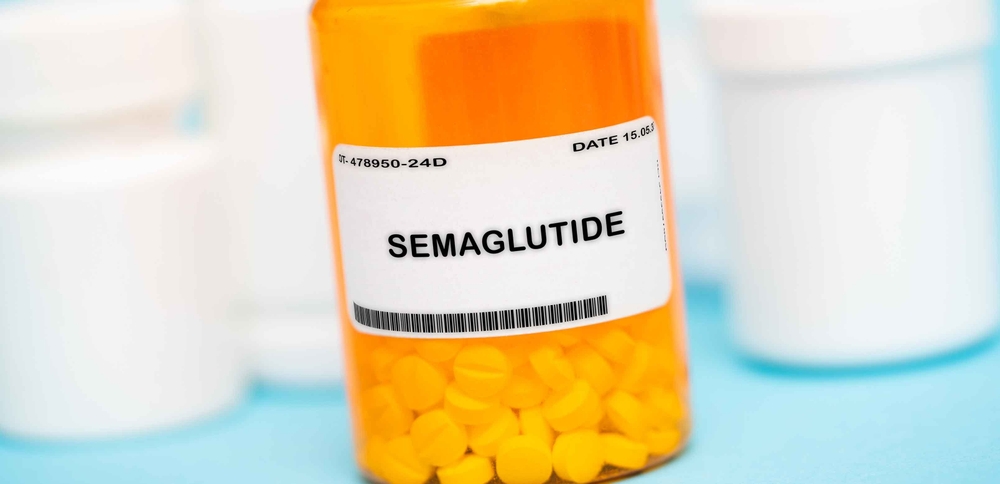Quick Summary
- Ozempic® is used to treat type 2 diabetes but supports weight loss and metabolic health.
- Ozempic may indirectly boost testosterone by reducing body fat and improving metabolic markers.
- Testosterone levels often rise when men lose weight and improve insulin sensitivity.
- Testosterone impacts sexual health, energy, and mood; low levels can affect libido and fertility.
- TRT (testosterone replacement therapy) may be considered if clinically low levels are diagnosed.
- Combining Ozempic with TRT may help some men, but requires medical oversight to avoid side effects.
- Lifestyle habits like exercise, sleep, and diet help maintain healthy testosterone levels.
Ozempic is a medication primarily used to regulate blood sugar in people with type 2 diabetes. Recently, it has gained attention for helping patients lose weight, especially among those with weight-related conditions. As more people start taking Ozempic, questions are rising about its effects beyond just blood sugar control.
One area of concern is testosterone. This hormone plays a major role in men's health, impacting energy levels, sexual function, mood, and body composition. Low testosterone levels cause reduced muscle mass, fatigue, and issues like erectile dysfunction.
So, how does Ozempic affect testosterone in men? If you are currently using Ozempic and wondering the same, this blog has all the answers for you.

What Is Ozempic and How Does It Work?
Ozempic is a medication primarily prescribed to adults with type 2 diabetes. It manages blood sugar levels and supports long-term health. The active ingredient in Ozempic is semaglutide, which belongs to a class of drugs known as GLP-1 receptor agonists.
These medications mimic a hormone the body naturally makes. This hormone lowers blood sugar after eating. Ozempic stimulates insulin release, which moves sugar out of the bloodstream and into the cells. At the same time, it slows digestion, which keeps sugar levels from rising too quickly.
Another benefit of semaglutide is that it reduces appetite. As a result, many people using Ozempic for diabetes management also experience weight loss. This can be especially beneficial for those with a weight-related condition, such as high blood pressure or metabolic syndrome.
By doing all this, Ozempic helps regulate blood sugar more smoothly throughout the day. While originally developed for diabetes, its benefits have expanded to support people trying to manage weight and improve their metabolic health.
How Weight and Metabolism Affect Testosterone
Body weight strongly affects testosterone production. Men with higher weight have lower testosterone levels. This is partly due to fat tissue converting testosterone into estrogen, which reduces overall hormone levels. A higher body mass index is often linked to this pattern, especially when excess weight is carried around the abdomen.
Metabolic health also affects T levels. Poor blood sugar control, insulin resistance, and high body fat can interfere with hormone balance. Over time, these issues can cause low testosterone. As the levels drop, it becomes harder to lose weight, which makes the problem worse.
Research has shown that improving weight and metabolism can raise testosterone levels. A study published in BMC Medicine found that testosterone therapy helped men lose more fat, especially visceral fat, while keeping lean mass intact. In contrast, men who followed the same diet without testosterone therapy lost both fat and muscle. The study concluded that in obese men with low to low-normal testosterone, weight loss during testosterone treatment came almost entirely from fat loss, unlike those on a placebo, who also lost muscle.
This finding highlights how body composition changes with the right support. Losing 5% to 10% of body weight can potentially improve hormone levels and reduce symptoms tied to low testosterone. These symptoms include low energy, poor sleep, and reduced libido. [1]
Additionally, improving body composition also helps. Gaining muscle and reducing fat support healthy testosterone production. A healthier metabolism causes more stable hormone levels and better overall energy.
All in all, testosterone is deeply connected to physiological well-being. As men lose weight and improve their body composition, they often see increased testosterone and better physical performance. In some cases, significant weight loss has been enough to correct low testosterone without medication.
If you're dealing with low testosterone, high body weight, or poor physiological health, it's worth speaking with a healthcare provider. A well-planned approach can address all three and improve long-term health outcomes.
Does Ozempic Affect Testosterone Levels?
Studies suggest a link between taking Ozempic and changes in hormone levels, including testosterone. These shifts may not be direct but could result from related changes in body weight, insulin resistance, and blood sugar.
When obese men lose weight, testosterone levels often rise. This is because excess body fat tends to lower testosterone and raise estrogen levels. Since taking semaglutide helps many patients lose weight, this benefit may also extend to hormone levels.
A study published in Endocrine Abstracts compared semaglutide with testosterone therapy in overweight men with type 2 diabetes. It found that those taking semaglutide saw greater improvements in body composition and testosterone levels. The findings indicated that semaglutide was superior to TRT in improving body composition and comparably increasing testosterone levels. [2]
On the other hand, a more recent observational study raised questions. A study looked at whether semaglutide, prescribed for weight loss in obese, non-diabetic men, affects erectile function. Researchers found that men on semaglutide had a higher risk of developing erectile dysfunction (ED) and testosterone deficiency compared to those not using the drug.
In the group using semaglutide, 1.47% developed ED, compared to 0.32% in the control group. This meant the risk of ED was 4.5 times higher for those on the medication. Additionally, 1.53% of men on semaglutide developed testosterone deficiency, while only 0.80% of those not taking the drug did. This showed a 1.9 times higher risk of lower testosterone levels for those on semaglutide.
One possible justification is that rapid weight loss or reduced calorie intake could temporarily disrupt hormone balance. In some cases, this may lower testosterone before it improves. However, we don't have concrete evidence to establish its relevance, and more research is needed on it. [3]
These findings don't directly suggest a negative impact from Ozempic, but they highlight the complexity of hormonal changes during weight loss. Testosterone levels can fluctuate depending on how the body responds to fat loss, muscle preservation, and overall metabolic shifts.
How Testosterone Affects Sexual Health
Testosterone plays a direct role in sexual function. It supports libido, sperm production, and the ability to maintain erections. When testosterone levels drop, several aspects of sexual health may start to shift.
Low testosterone is commonly linked to erectile dysfunction. While many factors can affect erectile function, hormone levels are a key part of the equation. A man with low testosterone may notice reduced interest in sex or difficulty with performance. This is not always due to age. Hormonal shifts can happen for other reasons, such as chronic stress, poor sleep, heavy use of alcohol, or any other underlying medical condition.
Testosterone also influences sperm health. It affects how much sperm the body produces and the overall semen quality. When levels are low, both sperm count and sperm quality can decline. This may lead to issues with fertility, even in younger men. Clinically low testosterone has been found in some men facing unexplained infertility.
The answer to whether taking semaglutide could affect their sexual health isn't clear-cut. While weight loss may support better hormone balance, sudden changes in the body might have the opposite effect for some.
You can take steps to increase your testosterone levels significantly. Focus on better blood sugar control and reducing body fat to notice positive changes. If you experience any new issues related to sexual function, it's important to have an open conversation with your doctor. If testosterone levels improve, sexual function often improves, too. Men may notice a stronger sex drive, better erections, or more energy overall.
Can I Take Ozempic with Testosterone Therapy (TRT)?
Some men who are taking testosterone or considering testosterone replacement therapy (TRT) may wonder how Ozempic fits into the picture. The goal in both cases is usually to improve testosterone levels, manage low testosterone, and support overall health. But can these treatments work well together?
Ozempic is often prescribed to support weight loss and improve blood sugar balance. In men with low testosterone, weight loss can naturally support better testosterone levels. This may indirectly improve erectile function and reduce related symptoms.
However, it's important to understand that taking testosterone and Ozempic at the same time doesn't guarantee better results. In some cases, hormone levels can shift in unexpected ways, especially if the treatment plan isn't carefully managed.
That's why a personalized treatment plan matters. Your doctor should monitor your T levels, track changes in weight, and assess symptoms like erectile dysfunction or changes in energy and mood. If both medications are used, the goal should be to balance benefits without increasing the risk of side effects.
Potential Risks and Considerations
Taking Ozempic or starting testosterone replacement therapy (TRT) comes with potential risks that need careful consideration. Both treatments can help with low testosterone and metabolic health, but they aren't risk-free.
Some men may experience an unexpected negative impact on health if these therapies are not monitored. For example, there have been concerns, such as:
- Thyroid cancer risk, especially with GLP-1 medications like Ozempic
- Increased chance of heart attacks or blood clots in certain individuals
- Worsening high blood pressure, especially when paired with other medications
- Hormonal shifts that could affect mood, sleep, and erectile dysfunction
Anyone considering testosterone replacement therapy TRT should share their full medical history with their doctor. This includes past or current heart, thyroid, or blood vessel issues.
Doctors must also watch for adverse effects when patients are taking testosterone or combining it with Ozempic. Combining these medications can impact how the body processes hormones and can increase the risk of side effects.
Men with low testosterone and erectile dysfunction should carefully weigh the risks and benefits of treatment. A good plan includes follow-up blood tests, tracking symptoms, and talking openly with a healthcare provider.

How to Manage Testosterone Through Lifestyle and Daily Habits
Testosterone levels can drop for several reasons, including age, health issues, and lifestyle choices. But you can adopt a few daily habits to keep your testosterone levels healthy.
These changes won't replace treatment, but they can improve how your body responds, especially if you're already on testosterone replacement therapy.
Healthy Habits That Support Optimal Testosterone Production
Simple changes to your routine can support hormone health and improve how you feel. These habits may also help improve erectile function and energy levels.
- Exercise regularly: Strength training can boost testosterone and help build muscle and improve body composition.
- Eat well: A diet with healthy fats, lean protein, and whole foods supports hormone balance.
- Get better sleep: Sleep apnea and poor sleep reduce testosterone and increase health risks.
- Manage stress: Chronic stress can lower testosterone and worsen symptoms of low testosterone.
Medical Options to Consider
Lifestyle changes help, but sometimes they aren't enough on their own, especially with low testosterone. Male Excel offers different treatments to fit your needs and lifestyle:
- Testosterone injections are available for those who want a faster, more direct approach to improving levels.
- Topical testosterone Lipoderm creams offer a convenient, daily option without the need for needles.
A personalized treatment plan ensures your care stays on track, whether you're dealing with erectile dysfunction, low energy, or other symptoms of low testosterone. Each treatment plan is different. Some men respond better to one method than another. A provider can guide you based on your labs, goals, and medical history.
Is Ozempic a Risk or Benefit for Testosterone?
Ozempic supports weight loss and can aid blood sugar control, which often helps normalize testosterone. Studies link losing weight with higher T levels in men facing obesity or insulin resistance. However, more research is needed to understand Ozempic's direct effect on hormone balance. Some men report lower testosterone levels or ongoing erectile dysfunction despite successful weight loss.
If you notice fatigue, low libido, or other signs of low testosterone while taking Ozempic, consult a healthcare provider. A full evaluation can reveal whether your testosterone levels need attention and guide you toward the right treatment.
Male Excel offers home-based testing, personalized TRT plans, and expert support to help you improve erectile function and overall hormone health. Take the next step toward balanced testosterone and better well-being with a provider who knows your needs.
References
1. Fui, M. N. T., Prendergast, L. A., Dupuis, P., Raval, M., Strauss, B. J., Zajac, J. D., & Grossmann, M. (2016). Effects of testosterone treatment on body fat and lean mass in obese men on a hypocaloric diet: a randomised controlled trial. BMC Medicine, 14(1). https://doi.org/10.1186/s12916-016-0700-9
2. Gregoric, N., Sikonja, J., Janez, A., & Jensterle, M. (2024b). The effects of semaglutide vs testosterone replacement therapy on functional hypogonadism and sperm quality in men with type 2 diabetes mellitus and obesity. Endocrine Abstracts. https://doi.org/10.1530/endoabs.99.oc12.5
3. Able, C., Liao, B., Saffati, G., Maremanda, A., Applewhite, J., Nasrallah, A. A., Sonstein, J., Alzweri, L., & Kohn, T. P. (Accepted/In press). Prescribing semaglutide for weight loss in non-diabetic, obese patients is associated with an increased risk of erectile dysfunction: a TriNetX database study. International Journal of Impotence Research. https://doi.org/10.1038/s41443-024-00895-6





